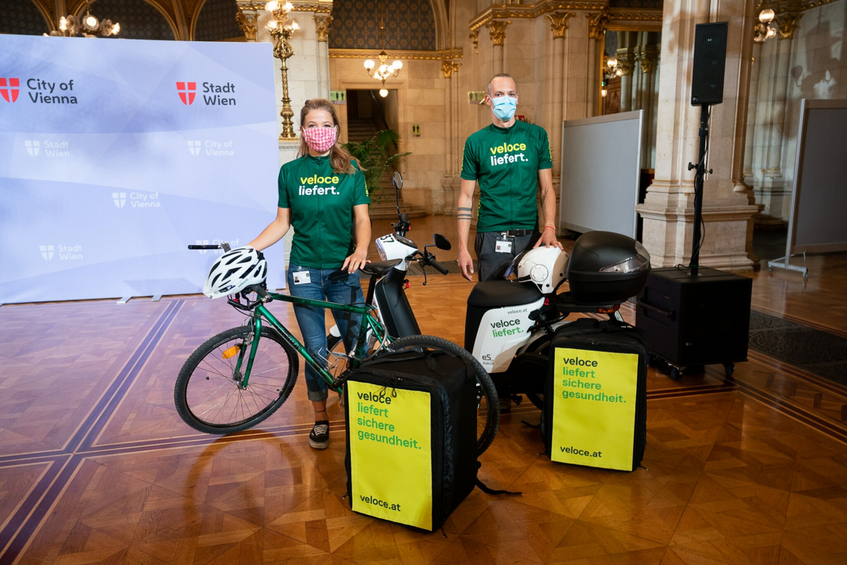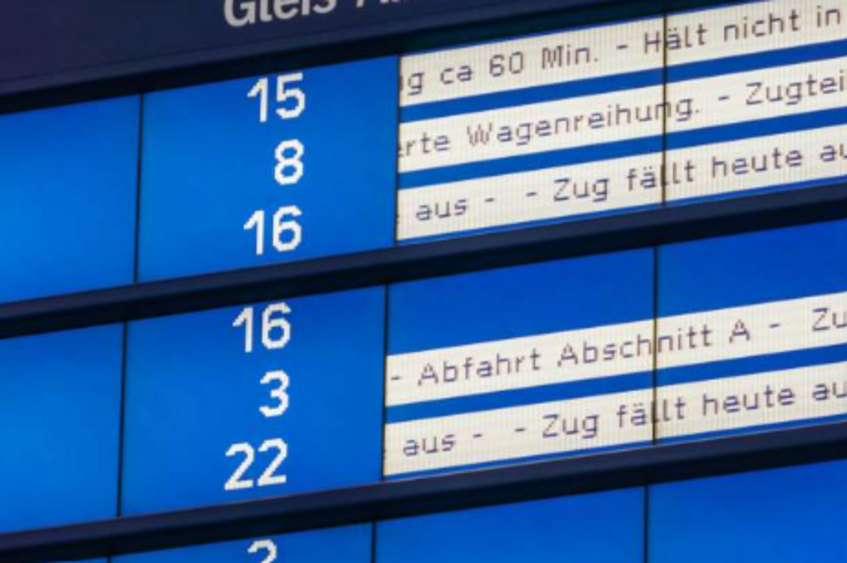Research

Due to increasing population in metropolitan areas, intelligent planning and control of urban mobility and freight transportation is becoming more important. Traditionally, research in the area of city logistics has investigated the trade-off between efficiency and reliability of urban deliveries. Extending well-known city logistics approaches, the Research Group Business Analytics focuses on the preparation and aggregation of large databases for dynamic and stochastic methods of transportation planning and control, e.g., optimal path-finding and vehicle routing. We follow a holistic approach stretching from data collection via data aggregation with data mining to extended approaches of applied operations research. We are also working on better planning and control of mobility and transportation services such as car and bike sharing services.
To check out our research in Green Logistics, watch the Flash Talk.
Research Focus Area Simulation-Based Analytics (SimBA) – Smart Decision-Making for Challenging Applications
We live in a world full of dynamic and heterogeneous socio-economical and socio-ecological challenges. We want to address these challenges with simulation-based analytics (SimBA). SimBA is about data-driven, smart decision making including causal and expert information. The starting point is data, which can be derived from large operational databases. SimBA’s approach is that simulation of socio-economical and socio-ecological relationships and systems provide synthetic data. Simulation focuses on microscopic, agent-based models, but will include also other modeling approaches. The created data and information needs to be transformed into information models, which describe the complex relationships compactly. This information is considered in anticipatory decision models, which allow for making smart decisions. The impact of these decisions can be evaluated by simulation models again, and the whole process can be refined until the trade-off between economical and ecological goals has been explored sufficiently.

The following projects have been funded in this area:
For more details, please click on the particular project.
Dynamic Tester Routing

Picture: www.meinbezirk.at
Dynamic Tester Routing
• Investigated by: Jan Fabian Ehmke, Marlin Ulmer, Niki Popper, Peiman Ghasemi
In the COVID-19 pandemic, we saw that rapid and efficient testing can effectively slow down the spread of a virus. Based on the idea of a mobile fleet of testers, we want to investigate in this research project how scarce resources can be used sensibly in a dynamic environment by planning ahead. For this purpose, modern methods and tools from agent-based simulation, data analysis and dynamic vehicle routing are used to examine the use of mobile tester fleets for COVID-19 cases. Abstracting from the COVID-19 example, we also want to analyze similar problems. When is the interaction of predictive planning in combination with machine learning helpful? How can detailed simulations improve forecasts? And how does one computationally feasibly integrate information from highly complex simulations into predictive planning? Examples here extend far beyond COVID-19, e.g., to demand forecasting for delivery services.
Participants in the project are Univ.-Prof. Jan Fabian Ehmke from the University of Vienna, who will focus on demand modeling. In addition, there is the expertise of Univ.-Prof. Dr. Marlin Ulmer, University of Magdeburg, who will be responsible for learning procedures related to predictive vehicle routing. Evaluation and demand generation will be done by Dr. Niki Popper (TU Wien), an expert in agent-based simulation.
Cooperation partners

This project is funded by The Austrian Science Fund (FWF): project number I 5908-G.
Green-TrAIn-Plan

Source: Johannes Plenio on unsplash.com
Green-TrAIn-Plan
• Investigated by: Jan Fabian Ehmke, Gislind Baumgartner, Fatih Kocatürk, Ninja Söffker
In this project, the focus is on the planning of green railway operations. To this end, we will develop and investigate new techniques for resource planning considering environmental objectives such as minimizing energy consumption. We want to overcome the significant challenge of modelling energy consumption in a way that simheuristics can create green schedules for trains and drivers. These techniques will be AI-based and include simheuristics that learn to solve resource planning problems by combining simulation and optimization. This requires the analysis and aggregation of real-world energy consumption data provided by ÖBB, modeling of resource planning, as well as defining AI-based interaction between simulation and heuristic optimization.
The consortium is led by dwh GmbH and further consists of ÖBB Produktion GmbH, the University of Vienna (UW) and the Technical University of Vienna (TUW). ÖBB will provide the required data, UW will focus on data aggregation for energy consumption modeling, and TUW and UW will work on integrated optimization and simulation of drivers' schedules.
Cooperation partners

The Austrian Research Promotion Agency (FFG) is the national funding agency for industrial research and development in Austria. Green-TrAIn-Plan (FFG project number 892235) is sponsored by the Federal Ministry for Climate Action, Environment, Energy, Mobility, Innovation and Technology as part of the AI4Green call for projects. www.ffg.at
VIPES

VIPES
• Investigated by: Jan Fabian Ehmke, Ninja Söffker, Kanchan Joshi, Fatih Kocatürk
This project aims to design both traction unit and train crew schedules in such a way that they are efficient and reliable. To estimate the quality of the schedules determined with mathematical optimization models and sophisticated solution methods in a realistic environment, they are evaluated in detail by an agent-based simulation. The major advantage of agent-based simulation is the possibility to evaluate all relevant details and to evaluate them with respect to reliability. Optimization models, on the other hand, have to abstract from the details of the overall railroad system in order to find satisfactory solutions in acceptable runtimes.
The consortium is led by DWH GmbH and further consists of ÖBB Produktion GmbH, the University of Vienna (UW) and the Technical University of Dresden (TUD). DWH is in charge of the agent-based simulation, analysis of operational data and project management. ÖBB will provide the required timetable, anonymized personnel requirements and disturbance data and will be available for discussions on the relevant planning problems. In particular, TUD will further develop mathematical models for circulation and shift planning as well as suitable solution approaches. UW will map disruptions by means of reliability models and lead the development of an AI-based control system that forms a smart interface between mathematical optimization and agent-based simulation.
Cooperation partners

The Austrian Research Promotion Agency (FFG) is the national funding agency for industrial research and development in Austria. VIPES (FFG project number 893963) is sponsored by the Federal Ministry for Climate Action, Environment, Energy, Mobility, Innovation and Technology as part of the AI4Green call for projects. www.ffg.at
Research Group Prescriptive Business Analytics -- FWF Project: Using Machine Learning in BPC for Vehicle Routing Problems

Research Group Prescriptive Business Analytics -- FWF Project: Using Machine Learning in BPC for Vehicle Routing Problems
• Investigated by: Juan Pablo Cantillana, Christian Tilk
The planning and execution of deliveries represents a significant share of the costs in the area of distribution logistics and there is a great interest in exploiting the optimization potential in this area as best as possible. Therefore, route planning problems are also one of the central issues of Operations Research (OR). The use of optimization methods for route planning promises great potential for cost savings through the higher quality of the planning results as well as through the automation and acceleration of the planning process. There are numerous variants of route planning problems based on the different real-world requirements that transport service providers face. In most route planning problems, the task is finding the cheapest set of routes for a given fleet of vehicles such that a given set of orders is fulfilled while taking various side-constraints into account.
The most powerful exact route planning algorithms are based on branch-cut-and-price (BCP), which in turn is based on column generation techniques. Here, a master problem is responsible for the best selection of the available routes, while one or more so-called pricing problems successively generate new routes. The planned project is intended to generate new insights into the use of machine learning (ML) in BCP to solve route planning problems. The key question is how ML can be used in OR algorithms, because optimization problems are very different from most problems successfully solved by ML.
Cooperation partners

This project is funded by The Austrian Science Fund (FWF): project number P 37074.
Customer Acceptance in Attended Home Deliveries

Customer Acceptance in Attended Home Deliveries
• Investigated by: Charlotte Köhler, Ann Melissa Campbell, Catherine Cleophas, Jan Fabian Ehmke
Home delivery services require the attendance of the customer during delivery. Hence, retailers and customers mutually agree on a delivery time window in the booking process. However, when a customer requests a time window, it is not clear how much accepting the ongoing request significantly reduces the availability of time windows for future customers. We explore using historical order data to manage scarce delivery capacities efficiently and flexibly.
Recent publications
• Flexible time window management for attended home deliveries
Also see
Collaborative Transportation for Attended Home Deliveries

Collaborative Transportation for Attended Home Deliveries
• Investigated by: Steffen Elting, Jan Ehmke, Margaretha Gansterer
Increasing congestion and concerns about harmful emissions in urban areas may soon motivate politics to install a collaboration platform for freight carriers to reduce the amount of delivery vehicles within cities. Moreover, by exchanging time window-based customer requests, carriers can gain additional profit. Combining methods of Operations Research and Game Theory, this project will investigate the interaction of dynamic customer acceptance and horizontal, auction-based carrier collaboration. The research goals are (1) to quantify the effect of dynamism in an auction-based horizontal carrier collaboration, (2) to determine an optimal methodological combination of delivery time slot management on the one hand and a combinatorial auction mechanism on the other hand, and finally (3) to investigate potential for strategic carrier behavior in both of these approaches.
Complex Customer Preferences in Multimodal Travel Itineraries

Complex Customer Preferences in Multimodal Travel Itineraries
• Investigated by: Thomas Horstmannshoff, Jan Fabian Ehmke
Easier access for travelers to a variety of individual mobility services via mobility applications and the integration of innovative means of transport have led to an increase in multimodal travel behavior in recent years. In this context, the combination of different transportation services within a certain period of time (mostly one week), or in particular within one trip, is referred to as multimodal mobility. In this research project, optimization approaches are developed which take complex individual traveler preferences into account when orchestrating travel itineraries. In particular, the identification of a diversified and adequate amount of different travel itineraries under consideration of individual traveler preferences will be investigated.
Recent publications
• Creation of Individualized Sets of Multimodal Travel Itineraries
Dynamic Vehicle Routing with Stochastic Customer Requests

Dynamic Vehicle Routing with Stochastic Customer Requests
• Investigated by Ninja Söffker, Marlin Ulmer, Dirk Mattfeld
Many service providers offer customers to serve their request on the same day. In the case of a pickup or service request, the new customer can be integrated in the currently conducted vehicle routes. The service provider therefore needs to decide both about the acceptance or rejection of the new request as well as about the modification of the current routes while aiming on maximizing the number of customers or profit generated over each day of service. Our aim is to learn how to make these decisions in anticipation of potential future customer requests. To this end, we investigate an approximate dynamic programming approach with an adaptive state space partitioning.
Recent publications
• Adaptive State Space Partitioning for Dynamic Decision Processes
• Stochastic Dynamic Vehicle Routing in the Light of Prescriptive Analytics: A Review
